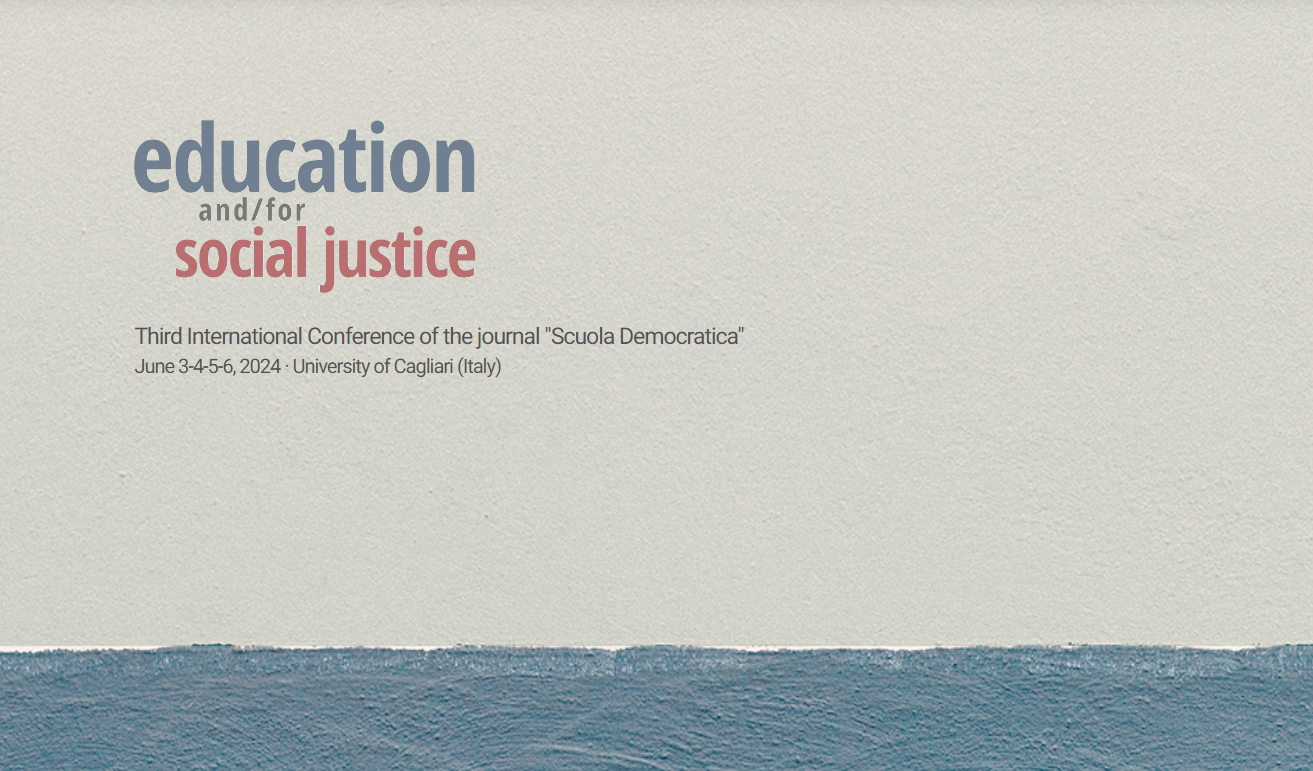
- This event has passed.
Session: “Ending gender-based violence in higher education institutions: Policies and problems”
3 June 2024 @ 11 h 00 min - 12 h 45 min CEST

Session: “Ending gender-based violence in higher education institutions: Policies and problems”
at Third International Conference
of the journal “Scuola Democratica”
Convenors: Marcela Linková (Czech Academy of Sciences, Czech Republic); Lut Mergaert (Yellow Window, Belgium); Sofia Strid (University of Gothenburg, Sweden)
The session will include four presentations, including the following presentation from GenderSAFE:
“Preventing Gender-Based Violence in Academia: Balancing Universal Principles and Contextual Demands in a European Code of Conduct”
Marina Cacace, Claudia Aglietti (Knowledge & Innovation), Ana Belén Amil (Central European University)
Although gender-based violence is prevalent in all countries and all social, organisational and professional settings, how it is conceptualised and understood, and to what extent or in what forms it is tolerated or opposed, is strongly influenced by contextual factors (Humbert et al. 2023). In any context, social, cultural, organisational, regulatory and other factors interact at different levels to produce manifestations of gender-based violence that have both universal and specific components. Higher education and research institutions are no exception, with gender-based violence now recognised as a widespread systemic problem, with negative consequences for institutions, individuals and societies (Mergaert, Linkova & Strid 2023).
From this perspective, gender-based violence, like the gender inequality that underlies it, can be qualified as a highly complex social problem due to its multiple causes, lack of a single dominant solution, context-sensitivity and intricate links with other societal issues (Eden & Wagstaff 2021). Complexity refers not only to gender-based violence as a social problem, but inevitably extends to the interventions and policies designed to address it, as well as to the system of actors involved, making it difficult to think of standard tools and solutions.
To overcome the difficulty of identifying common ways to address complex, context-sensitive social problems, multi-stakeholder engagement strategies are often proposed (Cashore et al. 2019), where affected communities participatively define the principles and design the processes that would be part of the proposed solution. Involving a wider range of stakeholders from different countries and types of institutions would help to address the need for context sensitivity (Reidl et al. 2020), allowing the consequences of different demands on different types of stakeholders to be anticipated.
This is the challenge being addressed by the GenderSAFE project, funded by the European Commission under the Horizon Europe programme for research and innovation, which will design and test a standard template for a European-level code of conduct for addressing gender-based violence.
Our contribution will first examine the issues that arise from the involvement of multiple stakeholders in the process of defining common tools and procedures in a highly heterogeneous context, and then explore the choice made in GenderSAFE to address this challenge through the creation of a Community of Practice (CoP), understood as a social learning environment (Wenger 1999). The CoP will be the tool to bridge the tension between the need for standardised approaches to gender-based violence on the one hand, and the specific, contextual needs of each participating institution on the other. Through the CoP, the relationship between general principles and diverse social and institutional practices will be deepened as a critical nexus in the development of profound and sustainable change processes.
